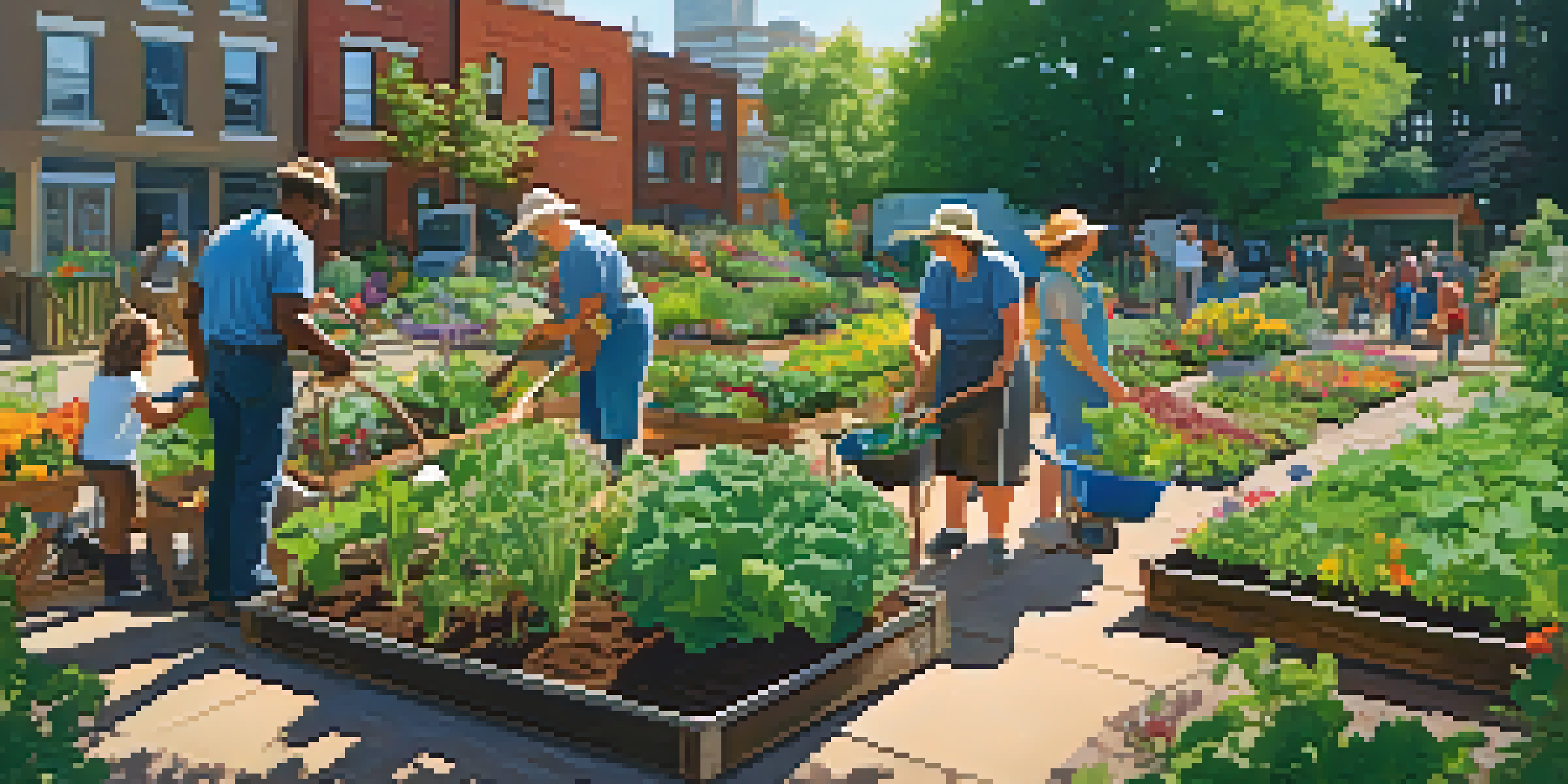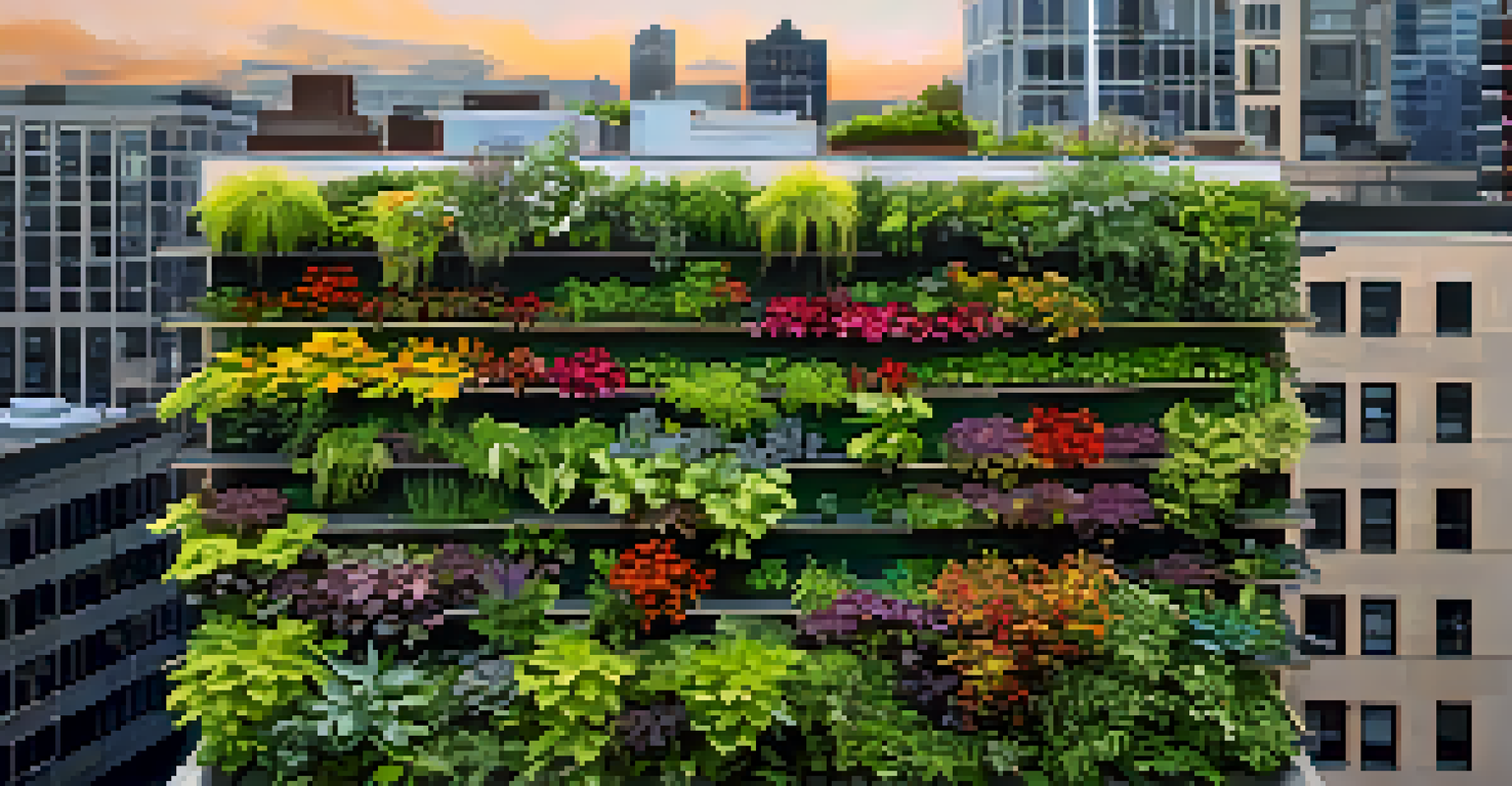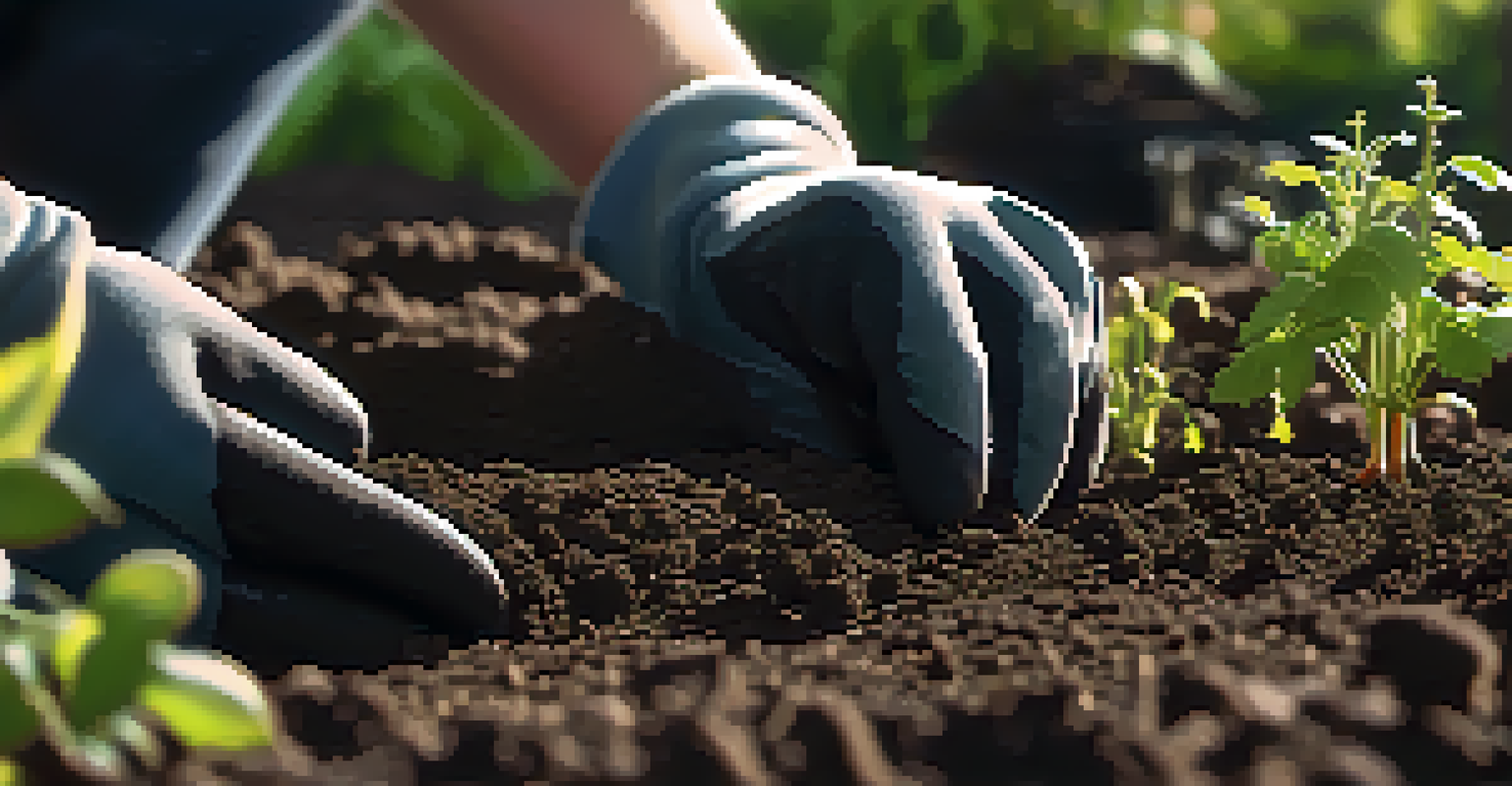Exploring Portland's Urban Gardens: A Model for Sustainability

Introduction to Portland's Urban Gardening Movement
Portland, Oregon, is often heralded as a beacon of sustainability, and its urban gardens are a prime example of this ethos. These green spaces not only beautify the city but also support biodiversity, provide fresh produce, and foster community connections. As urban areas grow and natural landscapes shrink, these gardens offer a refreshing respite from concrete. They are a testament to how cities can integrate nature into everyday life.
Urban gardening is not just about growing food; it's about building community and reconnecting with nature.
The city's diverse range of urban gardens includes everything from community plots to rooftop gardens and even vertical farms. Each garden reflects the unique character of its neighborhood while promoting sustainable practices. For instance, the community gardens are often designed to be accessible, allowing residents to grow their own food and learn about gardening techniques. This hands-on experience is invaluable in fostering a connection between people and their food sources.
Moreover, Portland’s urban gardens serve as educational platforms where people of all ages can learn about environmental stewardship. Workshops on composting, rainwater harvesting, and organic gardening are common, empowering individuals to adopt sustainable practices. By engaging the community in these efforts, Portland is not just creating green spaces; it’s cultivating a culture of sustainability.
The Role of Community in Urban Gardening
Community involvement is at the heart of Portland's urban gardening initiatives. Many gardens are managed by local residents who come together to share resources, knowledge, and labor. This collaboration fosters a sense of ownership and pride among participants, encouraging them to invest time and effort into their communal spaces. It also breaks down social barriers, creating a diverse environment where everyone is welcome.

For instance, the Multnomah County Community Garden Program connects neighbors and local organizations, creating a network of support for aspiring gardeners. This initiative not only provides access to land but also offers workshops and resources to help community members succeed. The result is a vibrant tapestry of gardens that reflect the community's diversity and creativity.
Community Drives Urban Gardening
Portland's urban gardens thrive on community involvement, fostering collaboration and a sense of ownership among residents.
Furthermore, these gardens often become gathering spaces for events, potlucks, and educational programs. They serve as a hub for social interaction, where friendships blossom alongside vegetables. This sense of community not only enhances individual well-being but also strengthens the social fabric of Portland as a whole.
Biodiversity and Urban Gardens
Urban gardens play a crucial role in promoting biodiversity within city landscapes. They provide habitats for pollinators, birds, and beneficial insects, which are essential for maintaining healthy ecosystems. By incorporating native plants and diverse crops, these gardens create a balanced environment that supports local wildlife. This is especially important in urban areas where natural habitats are often fragmented.
The best way to predict the future is to create it.
For example, the Intertwine Alliance works to connect people with the natural world, promoting biodiversity through urban gardening initiatives. Their programs encourage the planting of native species and the creation of wildlife corridors, ensuring that even in the heart of the city, nature can thrive. This not only enhances the beauty of Portland but also contributes to ecological resilience.
Moreover, urban gardens can serve as important sites for research and education on biodiversity. By studying the interactions between different species within these gardens, scientists and students can gain insights into sustainable practices that can be implemented elsewhere. This blend of education and conservation highlights the vital link between urban gardening and the health of our planet.
Sustainable Practices in Urban Gardening
Sustainability is a core principle woven into the fabric of Portland's urban gardens. Many gardeners adopt organic practices, avoiding harmful pesticides and fertilizers in favor of natural alternatives. This commitment to organic gardening not only enhances the health of the soil but also reduces pollution and promotes a safer food supply. It's a conscious choice that reflects broader environmental values.
Additionally, water conservation is a key focus in many of these gardens. Techniques such as rainwater harvesting, drip irrigation, and mulch application help to minimize water usage while maintaining healthy plants. By implementing these strategies, gardeners can cultivate lush spaces without putting unnecessary strain on local water resources.
Biodiversity in City Landscapes
Urban gardens enhance biodiversity by providing habitats for wildlife and promoting the planting of native species.
Composting is another sustainable practice that has gained popularity in Portland's urban gardens. By recycling kitchen scraps and yard waste, gardeners can create rich compost that nourishes their plants. This not only reduces landfill waste but also closes the nutrient loop, embodying the principles of sustainability in a very tangible way.
Health Benefits of Urban Gardening
Engaging with urban gardens offers a myriad of health benefits, both physical and mental. Gardening is a great form of exercise, promoting movement and reducing sedentary behavior. Whether digging, planting, or harvesting, the physical activity involved can lead to improved fitness levels and overall well-being. It's a fun way to get moving while enjoying the fresh air.
Beyond physical health, urban gardening can significantly impact mental well-being. Studies have shown that spending time in nature can reduce stress, anxiety, and depression. The act of nurturing plants and being part of a community can provide a sense of purpose and fulfillment. For many, these gardens are a sanctuary, a place to unwind and connect with nature amidst the hustle and bustle of city life.
Furthermore, the fresh produce harvested from urban gardens contributes to better nutrition. Access to fruits and vegetables encourages healthier eating habits, leading to improved overall health. By growing their own food, residents are empowered to make conscious dietary choices, reinforcing the connection between gardening and personal well-being.
Challenges Facing Urban Gardens
Despite their many benefits, urban gardens in Portland face a range of challenges. One significant issue is the availability of land, as urban development often encroaches on green spaces. Securing and maintaining garden plots can be difficult, particularly in neighborhoods where real estate prices are rising. Community members must often advocate for the preservation of these spaces to ensure they remain accessible.
Additionally, issues such as soil contamination can pose a risk for urban gardeners. Many city lots were once industrial sites, leading to concerns about pollutants in the soil. Thankfully, organizations like the Oregon State University Extension Service provide resources to help gardeners test their soil and understand how to remediate it. This education is crucial for ensuring the safety of the produce grown in urban gardens.
Health Benefits of Gardening
Engaging with urban gardens offers significant physical and mental health benefits, improving well-being through exercise and access to fresh produce.
Lastly, balancing the interests of diverse community members can be challenging. While some may want to grow food, others may prioritize aesthetics or recreational space. Effective communication and collaboration among gardeners are essential for finding common ground and creating inclusive gardens that serve the entire community.
The Future of Urban Gardening in Portland
Looking ahead, the future of urban gardening in Portland appears promising. With increasing awareness of sustainability and the importance of local food systems, more residents are likely to engage with these green spaces. This growing interest can lead to the development of new gardens and the revitalization of existing ones, further enhancing the city’s green landscape. Portland is poised to become a model for urban gardening across the nation.
Furthermore, innovative technologies and practices are emerging to support urban gardening. From hydroponics to aquaponics, these methods allow for efficient food production in limited spaces. As these technologies become more accessible, they may attract a new generation of urban gardeners, eager to experiment with sustainable practices and contribute to their communities.

Finally, as climate change continues to impact urban environments, urban gardens can play a vital role in building resilience. By promoting green infrastructure, cities like Portland can mitigate the effects of extreme weather while enhancing local ecosystems. The future of urban gardening is not just about growing food; it's about cultivating a sustainable and vibrant urban landscape for generations to come.